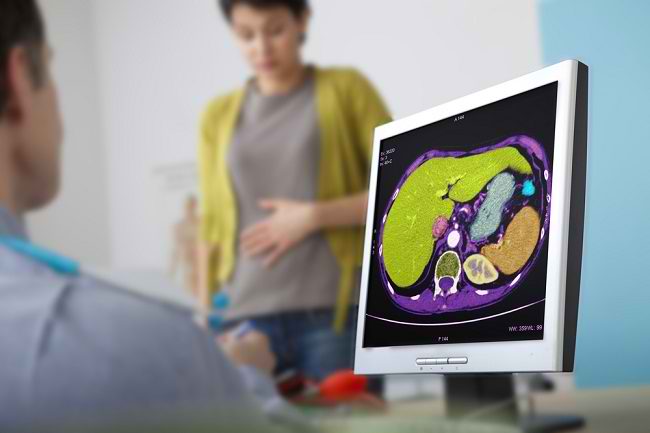Ever heard of gestational diabetes? This is a type of diabetes that can occur during pregnancy, especially in the second half of pregnancy. Gestational diabetes can interfere with pregnancy, as well as the health of pregnant women and babies.
Gestational diabetes is caused by increased levels of various hormones in the body during pregnancy. Increasing the amount of this pregnancy hormone can inhibit insulin action.
As a result, blood sugar rises and is stored as fat by the mother's body. Blood sugar levels that continue to be high can also cause the baby's weight to rise, to above average.
Therefore, pregnant women are advised not to often eat foods that are too sweet, such as ice cream, dried fruit, or fruit that contains a lot of sugar, such as longan and durian.

Gestational Diabetes Risk Factors
Apart from pregnancy, the risk of pregnant women getting gestational diabetes will be higher if they have the following factors:
Have a history of gestational diabetes
The risk of developing gestational diabetes will be higher if you have experienced this condition in previous pregnancies. So, early and periodic examinations are needed if pregnant women have been diagnosed with this condition before.
Over 25 years old
Pregnant women over the age of 25 are more likely to develop gestational diabetes.
Family history of diabetes
Pregnant women are more at risk of developing gestational diabetes if they have a family member who has diabetes, or if they have given birth to a baby weighing more than 4.1 kg.
Experiencing obesity during pregnancy
Pregnant women need to control their weight by knowing their body mass index (BMI). If the body mass index is more than 30, pregnant women are included in the obesity category. Being overweight can increase the risk of gestational diabetes.
Have a history of certain diseases
A woman has a higher risk of developing gestational diabetes if she has previously suffered from certain diseases, such as hypertension, heart problems, and PCOS.
Polycystic ovary syndrome (PCOS) is a condition that affects hormone levels in women. Pregnant women are at increased risk for gestational diabetes if they have had PCOS.
Danger Gestational Diabetes for Mother and Child
Gestational diabetes can affect the condition of pregnant women and fetuses. In pregnant women, gestational diabetes can cause:
- Premature birth or delivery at less than 37 weeks pregnant.
- Preeclampsia, which is a condition that causes high blood pressure during pregnancy and can lead to complications if left untreated.
- Miscarriage.
- Difficulty during labor to require induction or delivery by cesarean section due to the baby's weight above average.
- Polyhydramnios or excess amniotic fluid.
- Increased risk of postpartum hemorrhage.
If gestational diabetes is treated and monitored regularly, the baby can be born healthy. However, gestational diabetes can still affect the baby's condition, including causing:
- Large baby birth weight (more than 4 kg).
- Injuries at birth due to the size of his body.
- Low blood sugar levels in the body at birth.
- Respiratory disorders.
- Yellow baby.
- Born prematurely.
- Exposed to obesity and diabetes when growing up.
To prevent excessive increases in blood sugar levels, pregnant women who have gestational diabetes need to limit the consumption of foods that are high in sugar, such as ice cream or sweet fruits such as durian. Pregnant women are also advised to exercise regularly to prevent this pregnancy complication.
With regular treatment and monitoring, complications of gestational diabetes can be prevented. After giving birth, pregnant women's blood sugar will usually return to normal. However, pregnant women who experience this condition will be more at risk of developing type 2 diabetes later in life, or experiencing gestational diabetes again in a later pregnancy.
So, start to pay more attention to your health condition when you are pregnant. Consult your obstetrician if you have had gestational diabetes in a previous pregnancy.









